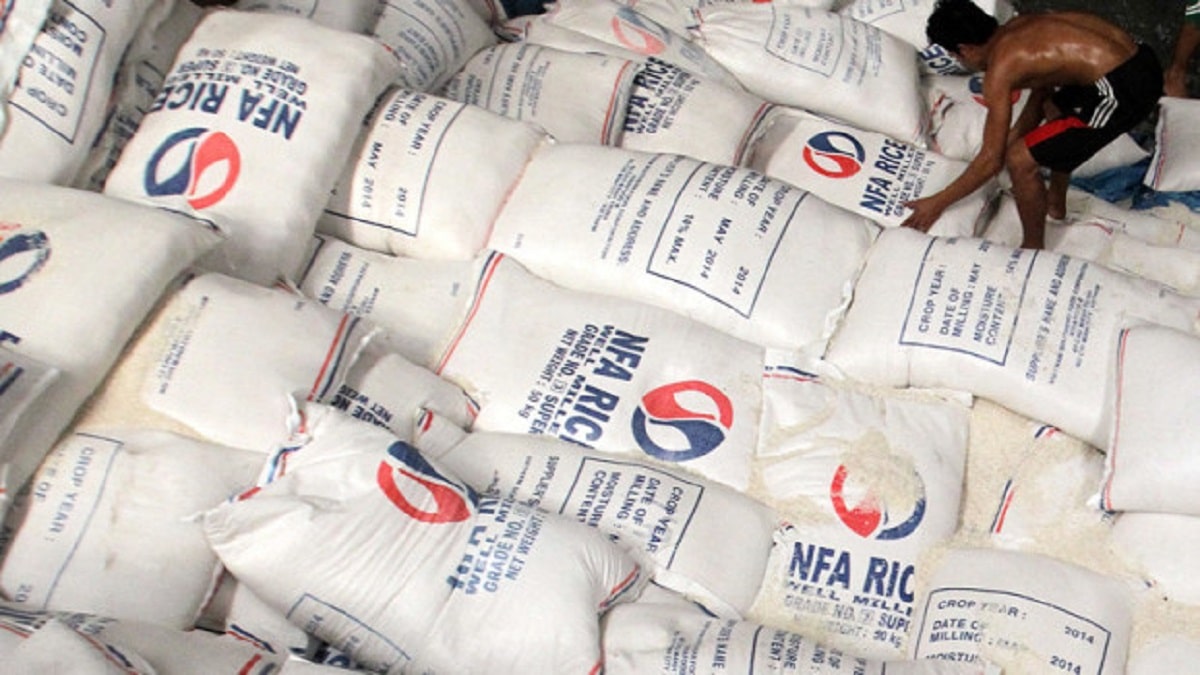Romualdez to lawmakers, poll bets: Is rice available, affordable?
MANILA, Philippines — Following the release of cheaper rice from the National Food Authority (NFA), House of Representatives Speaker Ferdinand Martin Romualdez has called on lawmakers and poll candidates to visit their districts to check if grains are available and affordable.
Romualdez, in a statement on Friday, said that while the sale of NFA rice priced at P35 per kilogram is a welcome development, there is still a need to ensure that the people benefit from this government intervention.
NFA started selling rice at P35 per kilogram after the Department of Agriculture (DA) declared a food security emergency, as rice prices have gone upwards of P46 per kilo.
“We know that each grain of rice is important to the Filipino family. We saw the positive steps taken by the government, but we should not be complacent. We have to do more to ensure that the price of rice is affordable for all,” Romualdez said.
“Numbers and reports are not enough. We need to go down to our districts, talk to farmers, retailers, and consumers. We have to ask: do our people have the rice to cook? How can we lower rice prices without affecting the income of our farmers?” he asked.
READ: Romualdez: Cheap rice okay, but farmers should get fair income
Romualdez also noted that the House quinta committee, or the five panels that investigated the rising prices of basic goods and commodities, played an important role in the reduction of prices as the food security emergency plan was widely discussed in the hearings.
“The Murang Pagkain Supercommittee is one with all government agencies focused on bringing down rice prices to ensure that there is no abuse, that implementation of policies is efficient, and that action is quick,” he said.
The quinta committee, led by House committee on ways and means chairperson and Albay 2nd District Rep. Joey Salceda, focused on rice for several hearings. At one point, the DA said it would implement a maximum suggested retail price (MSRP) for premium grains, with the belief that making high-class varieties cheaper would also impact regular-milled rice.
The MSRP would then be reviewed monthly to consider factors affecting prices.
READ: DA sets imported rice price cap at P58/kg
However, lawmakers pressed the DA for more aggressive solutions, particularly regarding the overdue declaration of a food security emergency.
Last January 15, the National Price Coordinating Council said they are looking at possible measures that would allow the DA to declare a food security emergency to mitigate the rising prices of basic commodities.
But when the order was still not released by January 28, Salceda and Marikina 2nd District Rep. Stella Quimbo pressed the government agencies to make the order immediately, as Filipinos struggle to cope with expensive rice varieties.
READ: DTI says food security emergency declaration out in 2 days
Romualdez said that currently, according to data from the Philippine Statistics Authority, the average farm gate price of dry palay was P20.69 per kilo in January 2025, a slight decrease from the P20.70 recorded in December. However, Romualdez said that this is still higher by 17.69 percent when compared to the average price in June 2022, which was P17.58 per kilogram.
“Based on these figures, we have seen the results of a balanced response from the government — market prices are lower, but we have ensured that farmers are not short-changed. We have done something right that we should continue,” he said.
Other lawmakers, like Quezon 1st District Rep. Mark Enverga, also thanked the executive branch for allowing the sale of cheaper NFA rice. However, Enverga said that reforms have to be initiated to ensure that the lower rice prices are sustained.
“We do not want a repeat of the previous situation where rice prices ballooned without any explanation. We would not stop until we can ensure that there is affordable rice for each Filipino family,” Enverga, chair of the House committee on agriculture and food and one of the heads of the quinta committee, said in a separate statement.
“Thanks to our quinta comm, the Department of Agriculture, and all agencies who helped bring down the price of rice […] but we must not stop here. The question now: how can we ensure that these prices are not a temporary respite?” he asked.
According to Enverga, there has to be transparency in costs involving the rice supply chain, as prices over the world market have already gone down.
“It is clear that the price over the world market has gone down, while the tariffs according to EO (Executive Order) No. 62 also decreased, but why can’t we feel that the prices are lower?” he asked, referring to President Ferdinand Marcos Jr.’s directive to cut the tariff on imported rice from 35 percent to 15 percent.
“We should be transparent on the price from the importation process up to the retail. When there is an SRP for wholesale price, we can stop the unabated profiteering by big businesses. We need to ensure that we have a proper basis for rice prices — from the declared purchase cost, wholesale price, up to the SRP,” he added.
